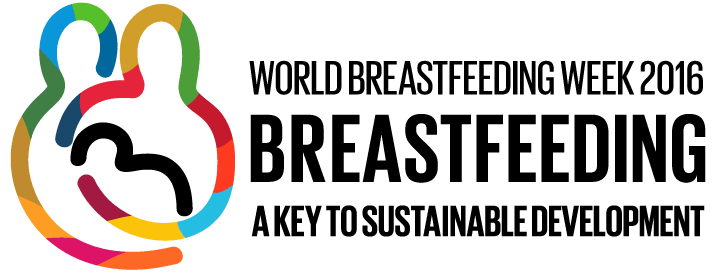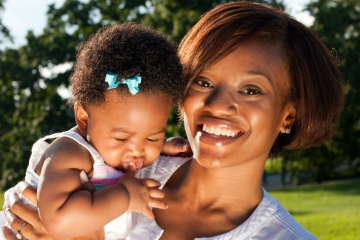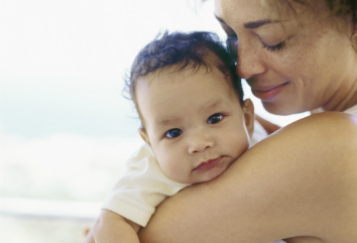World Breastfeeding Week 2016

World Breastfeeding Week (WBW) 2016 takes place from 1 to 7 August 2016 and is celebrated every year in more than 120 countries to encourage breastfeeding and raise awareness about infant health.
In September 2015, countries adopted a set of goals to end poverty, protect the planet, and ensure prosperity for everyone as part of a new sustainable development agenda. Each goal has specific targets to be achieved over the next 15 years, and together, these 17 goals form the Sustainable Development Goals (SDGs).
The theme for WBW this year is “Breastfeeding: a key to Sustainable Development” and it stresses the fact that breastfeeding is a key element in getting us to think about:
- breastfeeding as a key component of sustainable development in our communities,
- how to value our wellbeing from the start of life,
- how to respect each other, and
- care for the world we share.
First 1 000 days
Your child’s health is most vulnerable during the first 1 000 days of their life. The right nutrition during this 1 000-day window can have a profound impact on a child’s ability to develop and learn.
The Western Cape Department of Health encourages and promotes action and investment to improve nutrition for mothers and children in the first 1 000 days.
 Breastfeeding: feeding right from the start
Breastfeeding: feeding right from the start
Breast milk contains all the necessary nutrients (vitamins and minerals) for good growth and development. Your baby needs breast milk without any other food or liquids for the first 6 months of their lives. Thereafter, mothers can introduce nutritious foods and continue to breastfeed for as long as possible.
When to start breastfeeding
The best time to start breastfeeding is within the first hour after giving birth when your baby’s sucking reflex and action is at its strongest. Your baby will be placed in a skin-to-skin position with you which also encourages mother-baby bonding.
Why is exclusive breastfeeding important?
Breastfeeding helps you get to know your baby, and will assist your baby’s brain, teeth and jaw to develop. It also helps to protect your baby against respiratory and non-communicable diseases such as asthma and diabetes.
Breastfeeding is also good for you because it:
- Helps decrease bleeding after birth,
- Decreases the changes of developing breast and ovarian cancer, and
- Helps with weight control after pregnancy.
Getting the necessary support
The first few days after giving birth to a new born can be a very trying time for breastfeeding mothers and the support a mother receives in that time influences for how long she will continue to breastfeed. During the first few days at home the mother may be tired and will need as much support as possible.
Family support, a relaxed environment and assistance at home will contribute considerably towards a positive breastfeeding experience for mom and the rest of the family.
The local Western Cape milk bank, Milk Matters, is the result of the vision and foresight of the management team at Mowbray Maternity Hospital, the largest maternity centre in the Western Cape.
Mowbray Maternity Hospital is fortunate to have a Kangaroo Mother Care Ward, which also acts as a reservoir for breast milk donors. Some mothers spend months in the unit monitoring the growth of their infants and as a result can potentially donate litres of breast milk.
Donating breast milk is something that most lactating mothers are able to do, however some aren’t well-informed about the concept of donating their extra breast milk.
Milk banking is a community project that allows state institutions, the private sector, professionals, communities, individuals and breastfeeding mothers to participate in making a huge difference to many tiny and vulnerable little babies.
What can you do to help?
You can contribute to World Breastfeeding Week by helping us promote, educate and encourage support for breastfeeding mothers. If you’ve had a positive experience breastfeeding, please share your story using the hashtags #WBW2016 and #breastfeeding.
More information
You can read more about techniques, frequently asked questions and contact information, follow the links below:
Kindly contact your local clinic for more information about and assistance with breastfeeding needs and issues.
Breast is best!
Listen to our Breast Is Best radio advertisements:
- Afrikaans:
 wcg_-_breast_is_best_afr_radio.mp3
wcg_-_breast_is_best_afr_radio.mp3
- English:
 wcg_-_breast_is_best_eng_radio.mp3
wcg_-_breast_is_best_eng_radio.mp3
- isiXhosa:
 wcg_-_breast_is_best_xhosa_radio.mp3
wcg_-_breast_is_best_xhosa_radio.mp3



